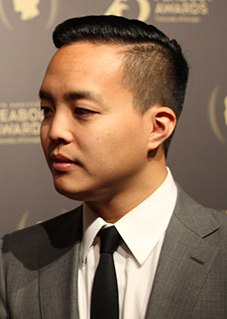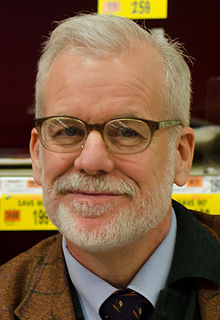A Quote by Pete Docter
It's really, always, the story and the characters that come first, and the other things are kind of dealt with in time or, in fact, driven by the story.
Related Quotes
You have to do three things really well to make a successful film. You have to tell a compelling story that has a story that is unpredictable, that keeps people on the edge of their seat where they can't wait to see what happens next. You then populate that story with really memorable and appealing characters. And then, you put that story and those characters in a believable world, not realistic but believable for the story that you're telling.
I decided to make myself a little less precious with my storytelling. I think you can see from the first three pieces in the book that I have a long term relationship with the short story as a form and I really love an elegantly crafted story that has several elements that come together in a way that is emotionally complex and different from when we started. That kind of crystalline, perfect, idealized thing that the short story as a genre has come to represent.
I've been a huge fan of Hal Ashby forever. And I think that the distinctive thing about 'Coming Home' is the love story, and how - kind of emotionally real it is, and how these two characters allow each other to see their - kind of vulnerabilities. And it's great because it's a love story that's not really that cheesy, either.
Every movie has three things you have to do - you have to have a compelling story that keeps people on the edge of their seats; you have to populate that story with memorable and appealing characters; and you have to put that story and those characters in a believable world. Those three things are so vitally important.
The story you envision as you start out is always a great story; when the facts turn out to be different from, or more complex than, what you expected, your first reaction is always disappointment. That's when you must fight the urge to bend the story to your preconceived notions. First, it's dishonest. And second, in the end, the truth is always the best story.
Animation story boarding works differently than live action story boarding. The story crew along with a writer really does shape and create the film - the world and it's characters. We meet almost every day and brainstorm the plot of the film. It's a highly collaborative process - and we continue to improve the story until we literally run out of time.
When I pray the Lord's Prayer, I begin with the first word, "Our. . ." (see Matthew 6:9) and I stop and ask myself, "Who do I include in this Our?" I remind myself that the story of God is bigger than my personal story, bigger than the story of my religion, bigger than the story of all humanity, and bigger than the story of all creation. In the kingdom of God, these four stories are all really my stories - all at the same time - woven together, giving meaning and life to each other.
One easy mistake to make with the first novel is to expand the short story. Some things are better as a story; you cannot dilute things into a novel. I think the first hundred pages of a novel are very important. That's where you set things up: the world, the characters. Once you've set that up, it'll be much easier.
The actors come in and they make characters their own and so Patrick and I have never been the kind to think that our script is the bible. We want to make sure that the story is told, that you stick to the story but if you have to make changes to the character then that's fine. A lot of times there are some funny one-liners, funny things that happen that are out of the ordinary. I like it.





































